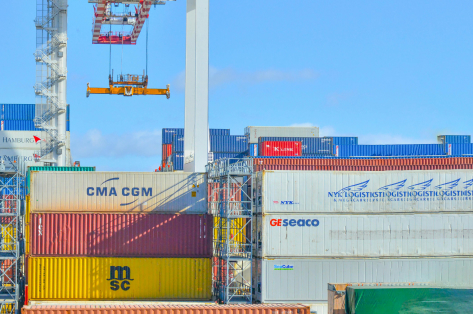
Get the latest industry news, insights, opinion, advice and best practice from our team of experts.

The logistics industry is constantly evolving, driven by technological advancements, market demands, and regulatory changes. Here are the top logistics trends to watch in 2024:
1. Increased Automation and AI Integration
Automation and artificial intelligence (AI) continue to transform logistics operations, enhancing efficiency and reducing human error. Autonomous vehicles, robotic process automation (RPA), and AI-driven predictive analytics are becoming more prevalent, streamlining processes such as order fulfillment, inventory management, and route optimization.
2. Sustainable Logistics Practices
Sustainability is a growing priority in the logistics industry. Companies are adopting green logistics practices to reduce their carbon footprint, such as using electric or hybrid delivery vehicles, optimizing routes to lower fuel consumption, and implementing eco-friendly packaging solutions. Carbon offset programs and renewable energy sources for warehouses are also gaining traction.
3. Expansion of Last-Mile Delivery Solutions
The rise of e-commerce has intensified the focus on last-mile delivery. Innovations such as drone deliveries, autonomous delivery robots, and crowd-sourced delivery services are being explored to enhance speed and efficiency. Companies are also investing in local micro-fulfillment centers to shorten delivery times and improve customer satisfaction.
4. Supply Chain Resilience and Risk Management
The COVID-19 pandemic underscored the importance of supply chain resilience. In 2024, businesses are prioritizing risk management strategies, such as diversifying suppliers, increasing inventory buffers, and investing in technology for real-time supply chain visibility. Advanced analytics and AI are being used to predict and mitigate disruptions.
5. Adoption of Blockchain Technology
Blockchain technology is being increasingly adopted to enhance transparency and security in supply chains. It offers a decentralized ledger that records all transactions, making it easier to trace products and verify authenticity. This is particularly valuable in industries such as pharmaceuticals and food, where traceability is crucial.
6. Growth of Cold Chain Logistics
The demand for cold chain logistics is rising, driven by the growth of the pharmaceutical and food industries. The need for efficient and reliable temperature-controlled logistics solutions is critical for transporting vaccines, biologics, and perishable goods. Innovations in refrigeration technology and IoT-enabled monitoring systems are enhancing cold chain capabilities.
7. Advanced Data Analytics and IoT
The Internet of Things (IoT) and advanced data analytics are revolutionizing logistics by providing real-time insights and enhancing decision-making. IoT devices can monitor the condition of goods, track shipments, and optimize warehouse operations. Data analytics help in forecasting demand, optimizing routes, and improving overall supply chain efficiency.
8. Emphasis on Cybersecurity
With the increasing reliance on digital technologies, cybersecurity is becoming a critical concern for logistics companies. Protecting sensitive data and ensuring the integrity of digital supply chains are paramount. Companies are investing in robust cybersecurity measures, including advanced encryption, multi-factor authentication, and regular security audits.
9. Flexible and Agile Logistics Networks
The need for agility in logistics networks is more pronounced than ever. Companies are adopting flexible logistics models that can quickly adapt to changing market conditions and customer demands. This includes leveraging on-demand warehousing, dynamic pricing models, and scalable transportation solutions.
10. Personalization and Enhanced Customer Experience
Customer expectations are evolving, and personalization is becoming a key differentiator. Logistics companies are using data-driven insights to offer tailored services, such as personalized delivery options and proactive communication. Enhancing the overall customer experience through reliable, transparent, and flexible services is a top priority.
Conclusion
The logistics industry in 2024 is poised for significant transformation, driven by technological innovations and changing market dynamics. By staying ahead of these trends, logistics companies can enhance their efficiency, sustainability, and customer satisfaction, positioning themselves for success in an increasingly competitive landscape.